
David Paul Cronenberg is a Canadian film director and screenwriter. He is a principal originator of the body horror genre, with his films exploring visceral bodily transformation, infectious diseases, and the intertwining of the psychological, physical, and technological. Cronenberg is best known for exploring these themes through sci-fi horror films such as Shivers (1975), Scanners (1981), Videodrome (1983) and The Fly (1986), though he has also directed dramas, psychological thrillers and gangster films.

Kirsten Caroline Dunst is an American actress. She made her acting debut in the anthology film New York Stories (1989). She gained recognition for her role as child vampire Claudia in the horror film Interview with the Vampire (1994), which earned her a Golden Globe nomination for Best Supporting Actress. She also had roles in her youth in Little Women (1994) and Jumanji (1995).

Howards End is a 1992 period romantic drama film directed by James Ivory, from a screenplay written by Ruth Prawer Jhabvala based on the 1910 novel of the same name by E. M. Forster. Marking Merchant Ivory Productions' third adaptation of a Forster novel, it was the first film to be released by Sony Pictures Classics. The film's narrative explores class relations in turn-of-the-20th-century Britain, through events in the lives of the Schlegel sisters. The film starred Emma Thompson, Anthony Hopkins, Helena Bonham Carter and Vanessa Redgrave, with James Wilby, Samuel West, Jemma Redgrave and Prunella Scales in supporting roles.
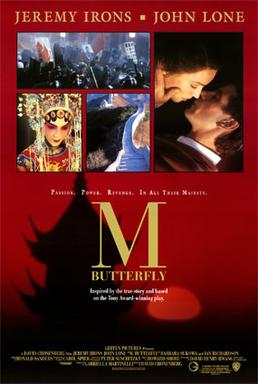
M. Butterfly is a 1993 American romantic drama film directed by David Cronenberg. The screenplay was written by David Henry Hwang based on his play of the same name. The film stars Jeremy Irons and John Lone, with Ian Richardson, Barbara Sukowa, and Annabel Leventon. The story is loosely based on true events which involved French diplomat Bernard Boursicot and Chinese opera singer Shi Pei Pu.
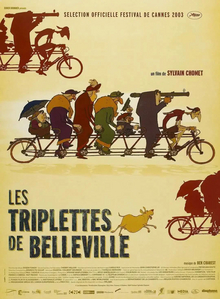
The Triplets of Belleville is a 2003 animated comedy film written and directed by Sylvain Chomet. It was released as Belleville Rendez-vous in the United Kingdom and Ireland. The film is Chomet's first feature film and was an international co-production among companies in France, Belgium, Canada and the United Kingdom.
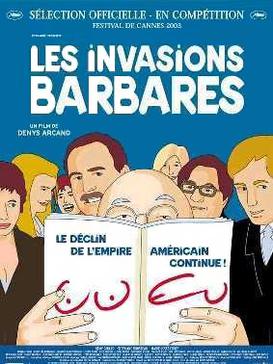
The Barbarian Invasions is a 2003 Canadian-French sex comedy-drama film written and directed by Denys Arcand and starring Rémy Girard, Stéphane Rousseau and Marie-Josée Croze. The film is a sequel to Arcand's 1986 film The Decline of the American Empire, continuing the story of the character Rémy, a womanizing history professor now terminally ill with cancer.
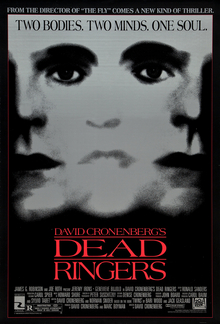
Dead Ringers is a 1988 psychological thriller film starring Jeremy Irons in a dual role as identical twin gynecologists. David Cronenberg directed and co-wrote the screenplay with Norman Snider. Their script was based on the lives of Stewart and Cyril Marcus and on the novel Twins by Bari Wood and Jack Geasland, a "highly fictionalized" version of the Marcuses' story.
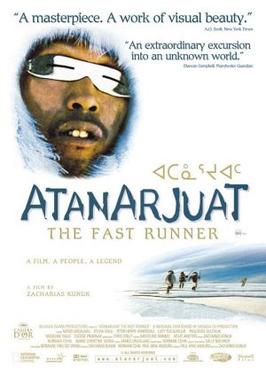
Atanarjuat: The Fast Runner is a 2001 Canadian epic film directed by Inuit filmmaker Zacharias Kunuk and produced by his company Isuma Igloolik Productions. It was the first feature film ever to be written, directed and acted entirely in the Inuktitut language.

A History of Violence is a 2005 action thriller film directed by David Cronenberg and written by Josh Olson. It is an adaptation of the 1997 graphic novel of the same title by John Wagner and Vince Locke. The film stars Viggo Mortensen, Maria Bello, Ed Harris, and William Hurt. In the film, a diner owner becomes a local hero after he foils an attempted robbery, but has to face his past enemies to protect his family.

Crash is a 1996 Canadian drama film written, produced and directed by David Cronenberg, based on J. G. Ballard's 1973 novel of the same name. Starring James Spader, Deborah Kara Unger, Elias Koteas, Holly Hunter and Rosanna Arquette, it follows a film producer who, after surviving a car crash, becomes involved with a group of symphorophiliacs who are aroused by car crashes and tries to rekindle his sexual relationship with his wife.

Peter Suschitzky, A.S.C. is a British cinematographer and photographer. Among his most known works as director of photography are The Rocky Horror Picture Show, The Empire Strikes Back, and Mars Attacks! and the later films of David Cronenberg. Suschitzky succeeded Mark Irwin as Cronenberg's regular cinematographer when Irwin left during the pre-production of Dead Ringers (1988), and has been the cinematographer for all of Cronenberg's films since, with the exception of Crimes of the Future (2022). He has also collaborated with directors John Boorman, Ken Russell, Bernard Rose, and Tim Burton.

Eastern Promises is a 2007 British-Canadian gangster film directed by David Cronenberg from a screenplay by Steven Knight. The film tells the story of Anna, a Russian-British midwife who delivers the baby of a drug-addicted 14-year old trafficked Ukrainian girl who dies in childbirth. After Anna learns that the teen was forced into prostitution by the Russian Mafia in London, the leader of the Russian gangsters threatens the baby's life, and Anna is warned off by his menacing henchman.
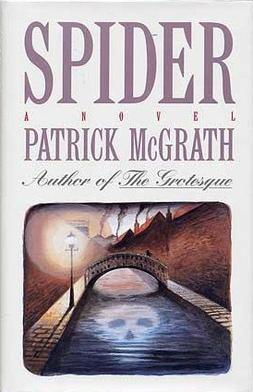
Spider is a novel by the British novelist Patrick McGrath, originally published in the United States in 1990. In the novel, a psychological thriller with an unreliable narrator, the protagonist wrestles with mental illness and trauma from his past.
The Academy of Canadian Cinema and Television presents an annual award for Best Achievement in Cinematography, to honour the best Canadian film cinematography.
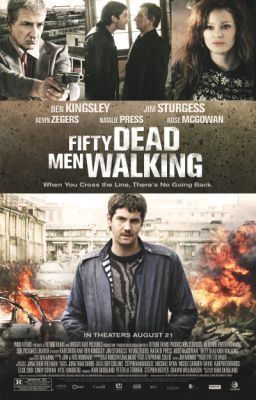
Fifty Dead Men Walking is a 2008 English-language crime thriller film written and directed by Kari Skogland. It is a loose adaptation of Martin McGartland's 1997 autobiography of the same name. It premiered in September 2008, and stars Jim Sturgess as McGartland, a British agent who went undercover into the Provisional Irish Republican Army (IRA), and Ben Kingsley as Fergus, his British handler.
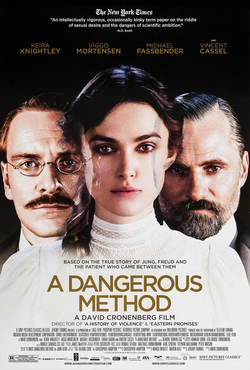
A Dangerous Method is a 2011 historical drama film directed by David Cronenberg. The film stars Keira Knightley, Viggo Mortensen, Michael Fassbender, Sarah Gadon, and Vincent Cassel. Its screenplay was adapted by writer Christopher Hampton from his 2002 stage play The Talking Cure, which was based on the 1993 non-fiction book by John Kerr, A Most Dangerous Method: The Story of Jung, Freud, and Sabina Spielrein.
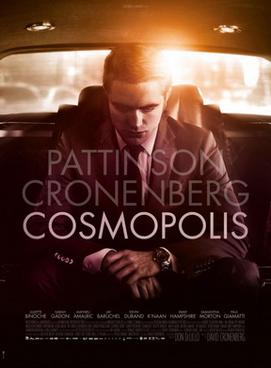
Cosmopolis is a 2012 drama film written, produced, and directed by David Cronenberg. It stars Robert Pattinson, Paul Giamatti, Samantha Morton, Sarah Gadon, Mathieu Amalric, Juliette Binoche, Jay Baruchel and Kevin Durand. It is based on Don DeLillo's 2003 novel.

Maps to the Stars is a 2014 internationally co-produced satirical drama film directed by David Cronenberg, and starring Julianne Moore, Mia Wasikowska, John Cusack, Robert Pattinson, Olivia Williams, Sarah Gadon, and Evan Bird. The screenplay was written by Bruce Wagner, who had written a novel entitled Dead Stars based on the Maps to the Stars script, after initial plans for making the film with Cronenberg fell through.
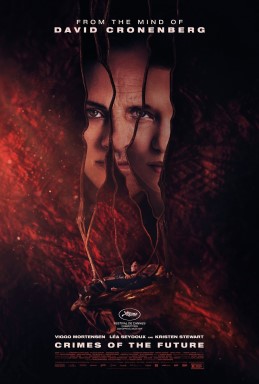
Crimes of the Future is a 2022 science fiction body horror drama film written and directed by David Cronenberg. The film stars Viggo Mortensen, Léa Seydoux and Kristen Stewart. It follows a performance artist duo who perform surgery for audiences in a future where human evolution has accelerated for much of the population. Although the film shares its title with Cronenberg's 1970 film of the same name, it is not a remake as the story and concept are unrelated. The film marked Cronenberg's return to the science fiction and horror genres for the first time since Existenz (1999).
Blue Skies is a Canadian short drama film, directed by Ann Marie Fleming and released in 2002. Created as a personal response to the September 11 attacks and told without dialogue, the film stars Alessandro Juliani as a Chinese opera performer who cannot stop crying in his dressing room, and Stephanie Morgenstern as a costume master who patiently dresses him and calms him down before his scheduled performance of Irving Berlin's song "Blue Skies".


















